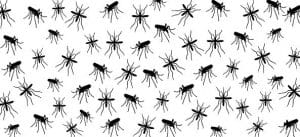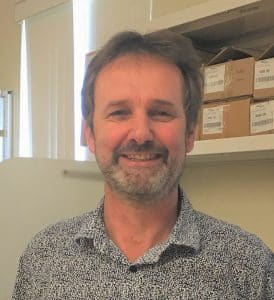
In an editorial published in Nature Biotechnology, proponents of crowdsourcing to help speed up innovation in the search for malaria treatments and cures write that “crowdsourced data science challenges can achieve in months what would take years through conventional research approaches.” Enter the Malaria DREAM Challenge, an initiative launched in April 2019. According to the website, the challenge is “open to anyone interested in contributing to the development of computational models that address important problems in advancing the fight against malaria.”
Texas Biomed Professor Tim Anderson, Ph.D., is certainly interested in advancing the fight against malaria. Dr. Anderson is one of the authors of the editorial and part of the team advancing the Malaria DREAM Challenge. “The idea is to put data out there and have a sort of data Olympics,” Dr. Anderson said. “We want to challenge computational biologists working on both malaria and other disciplines to explore these data and work out the best solution, rather to try to crunch all the numbers on our own”.
Those numbers are transcription data from samples of parasite-infected people. Dr. Anderson’s lab provided malaria parasite from the SE Asia. His lab grows and clones the parasites and measures levels of drug resistance. In recent years, parasites have evolved resistance to a drug called artemisinin – this is a major roadblock to efforts to eliminate malaria, and contributes to the more than 400,000 deaths worldwide each year. The goal of the challenge is to use the transcriptional signature of these parasites to predict levels of resistance.

Disease Intervention and Prevention Program Co-Lead
“The internet is a powerful enhancer of human collaboration globally,” the editorial goes on to say. The partners already involved in the Malaria DREAM Challenge illustrate that collaborative spirit; they include the University of Notre Dame, Icahn School of Medicine at Mount Sinai, New York, IBM Research Africa in Johannesburg, South Africa, Mahidol-Oxford Tropical Medicine Research unit in Thailand, University of Cape Town in South Africa, Institut Pasteur de Tunis in Tunisia, and IBM Thomas J. Watson Research Center in New York. The Bill and Melinda Gates Foundation is providing funding support.
The DREAM Challenges were initiated in 2007. Since that time, 15 have involved cancer. None has involved infectious diseases until now. Anderson and the other authors of this published editorial write that the Malaria DREAM Challenge could serve as a model for other underexplored global health challenges, like neglected tropical diseases.
A malaria-focused data science challenge may “enable the field to tap into data scientists who do not ordinarily work on malaria,” the editorial authors write, “and, with the right incentives, elicit interest in the disease.”